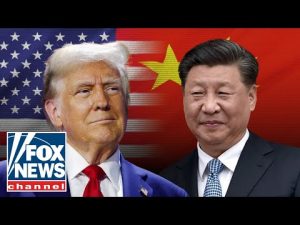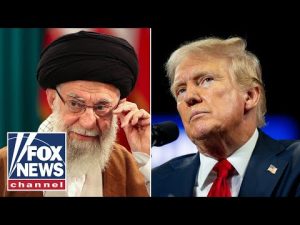The world of trade just got a shake-up with the announcement of a 125% tariff on all Chinese goods. This drastic measure couldn’t have come at a more pivotal moment for the U.S. steel industry, a sector that employs thousands of hard-working Americans. For years, Americans have been witnessing a trade imbalance that rivals the most unfair board game—only this isn’t Monopoly, and the stakes are much higher. Our steel industry has been caught in a global trade web woven by a multitude of unmet promises and economic chess games. For the average Joe working in the American steel mills of Michigan, Indiana, and Maryland, this tariff could finally mean a level playing field, or at least the promise of one.
American companies, like the one led by a forthright CEO, have been battling global competitors with one hand tied behind their backs. Imagine making a product—say, a medical device basket—and upon shipping it overseas to Germany, the regulations slap a hefty $128 tariff on it. Meanwhile, when a similar product travels from Germany to the U.S., Americans pay a measly $1.25. This isn’t just some hypothetical conundrum; it’s real, and it puts our workers at a fierce disadvantage. This is precisely why the idea of these new tariffs might make some folks jump for joy. It’s not about isolationism; it’s about fair play—something both sides of the political aisle can rally behind.
The new tariff may feel a bit like whiplash to some, especially to the folks in business and those focused on the fine print of trade deals. Yet, let’s face it, the previous games have been skewed by both Democrats and Republicans for generations. Still, this isn’t a day to point fingers; it’s about grabbing the chance to rewrite the rulebook. This tariff move is about setting the stage for future generations of American workers to thrive, not just survive. It’s about demanding fairer deals that have been long overdue.
Looking over to China, the stakes are even higher and murkier. China doesn’t just play by its own rules; it rewrote the rulebook with magic ink. With currency debasement and export subsidies, China has been driving international trade with questionable tactics, including the use of forced labor. The fact that they can rip off American innovations with all the precision of a kid copying homework is alarming. Tariffs, in this sense, aren’t merely taxes—they’re defensive tools meant to guard against these unfair practices. The time has come to protect not just our goods but also our ingenuity, intellectual property, and the very essence of economic freedom.
For those watching from the factory floors to the market analysts, the journey doesn’t end with this tariff announcement. It’s just the opening chapter of what promises to be an intense saga. American workers deserve the chance to flourish on an even field. While the hefty tariff is a bold move, it could lead to new opportunities for employment and growth—if handled wisely. As the saying goes, “fortune favors the bold,” and the American economy is ready to be bold. It’s time to take our shot at redefining fair trade—not just with a pen, but with a fiercely defended position on the global stage.







